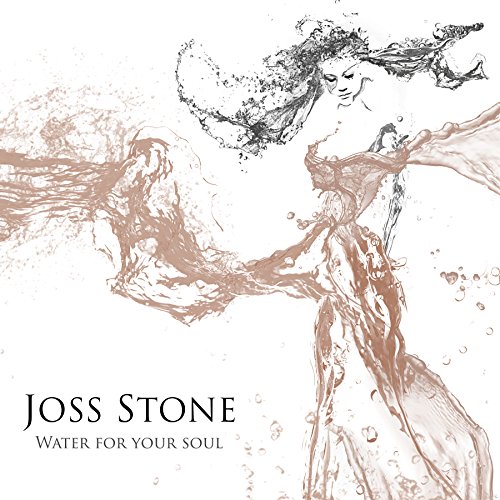
Joss Stone
Water for Your Soul
Release Date: Jul 31, 2015
Genre(s): R&B
Record label: Kobalt
Music Critic Score
How the Music Critic Score works
Buy Water for Your Soul from Amazon
Album Review: Water for Your Soul by Joss Stone
Fairly Good, Based on 7 Critics
Based on rating 8.3/10
Joss Stone, modern queen of the timeless old-school soul, has propelled herself into a project merging hip hop, reggae, world music and R&B. Her tenure in the short-lived all-star group SuperHeavy with Mick Jagger, Dave Stewart and Damien Marley served as the catalyst for Water For Your Soul. And those influences from such diverse genres make Stone’s latest even that much more delicious.
Based on rating 7/10
"How Joss Got Her Groove Back" might be a more appropriate title for Joss Stone's seventh studio offering. The British soul diva's last two albums were scattershot affairs: 2009's Colour Me Free! was mired in label politics and unsuccessful concessions to adult contemporary radio, while 2012's The Soul Sessions Vol. 2 failed to recapture the charming retro-vibe of its 2003 predecessor.A much-needed new approach came from Damian Marley (Stone's band mate in SuperHeavy and producer on Water For Your Soul), who suggested she record a reggae album; the result showcases a rejuvenated Stone.
Based on rating 7/10
Joss Stone has never hid her ambitions to conquer the globe. In her public statements and on her recordings, Stone’s persona has always been boastful and proud. She’s currently on a world tour in which she plans to visit 204 countries in three years. Stone is also taking on world music on her reggae-based new album, Water for Your Soul.
Based on rating 3/5
Now seven albums into her career, one-time wunderkind Joss Stone has failed to get her critical due, arguably because her personality quirks – such as the adoption of an American accent at the 2007 Brit awards – have overshadowed her undeniable talent. Water for Your Soul contains similar elements of cultural appropriation: the pro-weed track Sensimilla will prompt mass eye-rolling because of her decision to sing part of it in patois, and Harry’s Symphony likewise (her accent – “If you want to get ‘igh, bring your own supply” etc – turns it into Stone’s own Dreadlock Holiday, which probably wasn’t the intention). You wonder why co-producer Damian Marley didn’t counsel against this foolishness, because the latter song – an 80s reggae throwback that broodingly warns against being taken in by “bad boys” – is more than listenable, and other moments on this reggae/African-influenced album are fine, too.
Based on rating 5/10
The concept of Joss Stone's seventh studio release began to take shape following the formation of SuperHeavy, the multicultural, cross-generational group that released an awkward if free-spirited album in 2011, just before The Soul Sessions, Vol. 2 materialized. Among Stone's bandmates was Damian Marley, who implored the singer to cut a reggae album.
Based on rating 2/5
Ever since Devon’s Joss Stone arrived at the 2007 Brit awards with an American accent her career, at least in the UK, has nosedived. Her “reggae-ish” (Stone’s words) seventh album Water for Your Soul isn’t likely to change matters. Born out of the ashes of SuperHeavy, her collaboration with Mick Jagger and Damian Marley, it contains flashes of her former glories - This Ain’t Love’s soft R&B lilt; The Answer’s joyful chorus – but the rest is proficient, if hackneyed, the double whammy of the cod-Jamaican accent on Sensimilla (“plant a lickle seed”) and Placebo-quoting weed anthem Harry’s Symphony the nadir.
Opinion: Excellent
Reggae music is perfect for these lazy, hazy days of summer, and there’s a lot of it on this enticing new album from Britain’s Joss Stone. The former teen sensation’s leap into reggae came after meeting Damian Marley during sessions for Superheavy, a band that also featured Mick Jagger and Dave Stewart. Stone and Marley co-wrote the rootsy, Peter Tosh-like groove of “Love Me” and the hip-hop-influenced “Wake Up,” in which Stone admits to being a “flower child” and blasts the music industry (“the suits took over”).
'Water for Your Soul'
is available now

